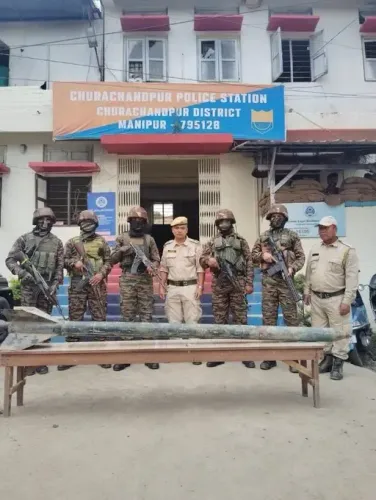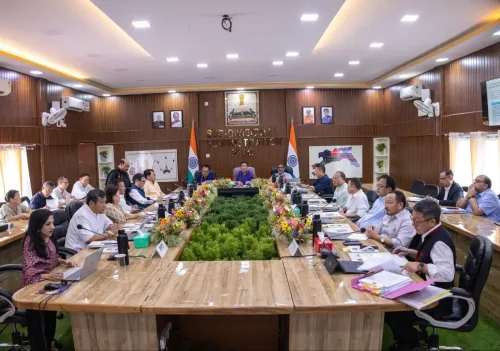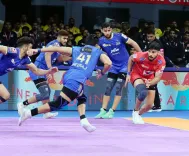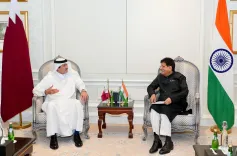How Did PM Modi and CM Yogi Honor Revolutionaries on Kakori Rail Conspiracy's Centenary?

Synopsis
Key Takeaways
- Commemoration of Kakori Rail Conspiracy reflects the valor of freedom fighters.
- Prime Minister Modi's tribute emphasizes the importance of their sacrifices.
- Chief Minister Yogi Adityanath highlights the inspiring legacy of these revolutionaries.
New Delhi, Aug 9 (NationPress) Prime Minister Narendra Modi and Uttar Pradesh Chief Minister Yogi Adityanath gathered on Saturday to mark the centenary of the Kakori Rail Conspiracy, paying homage to the bravery, sacrifice, and vision of the revolutionaries involved in this significant episode of the Indian freedom struggle.
In a message shared on X, the Prime Minister stated: “A century ago, the valor demonstrated by patriotic Indians at Kakori showcased the widespread dissent against colonial rule. Their anger stemmed from the exploitation of the people's wealth for colonial gain. The memory of their courage will remain etched in the hearts of Indians. We are committed to realizing their aspirations for a robust and thriving India.”
Chief Minister Yogi Adityanath expressed his tribute by writing: “Sincere tributes to all the immortal revolutionaries on this anniversary of the 'Kakori Rail Action' that shook the foundations of British authority! This heroic saga of the sons of Mother India serves as an everlasting source of inspiration. Their sacrifice, bravery, and patriotism will forever motivate us to act with the spirit of ‘Nation First’.”
The Kakori Rail Conspiracy, often known as the Kakori train robbery, occurred on August 9, 1925, when members of the Hindustan Republican Association (HRA), including Ram Prasad Bismil, Ashfaqulla Khan, Chandrashekhar Azad, Rajendra Lahiri, and Roshan Singh, halted the 8-Down train on the Saharanpur–Lucknow route near the Kakori railway station in Uttar Pradesh.
This train was transporting government treasury funds, which the revolutionaries seized to support their armed resistance against British rule.
The audacity of this act was aimed at not only securing resources for the movement but also signaling a strong political stance against British exploitation.
The British authorities responded with a severe crackdown, leading to the arrest, trial, and harsh punishments for many participants.
In 1927, Ram Prasad Bismil, Ashfaqulla Khan, Rajendra Lahiri, and Roshan Singh were executed, while others faced lengthy prison sentences. Chandrashekhar Azad successfully evaded capture and continued his fight until his demise in 1931.








